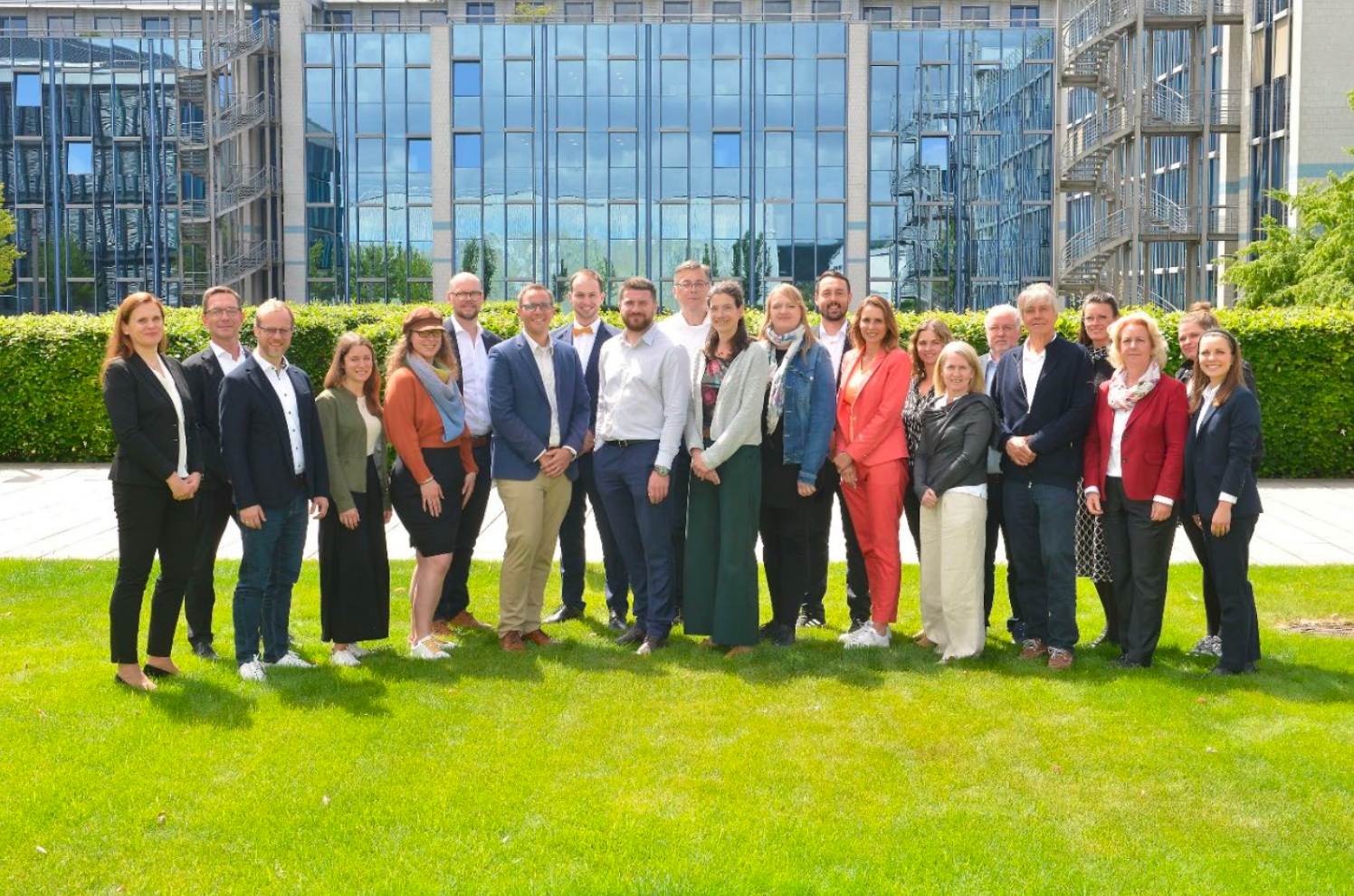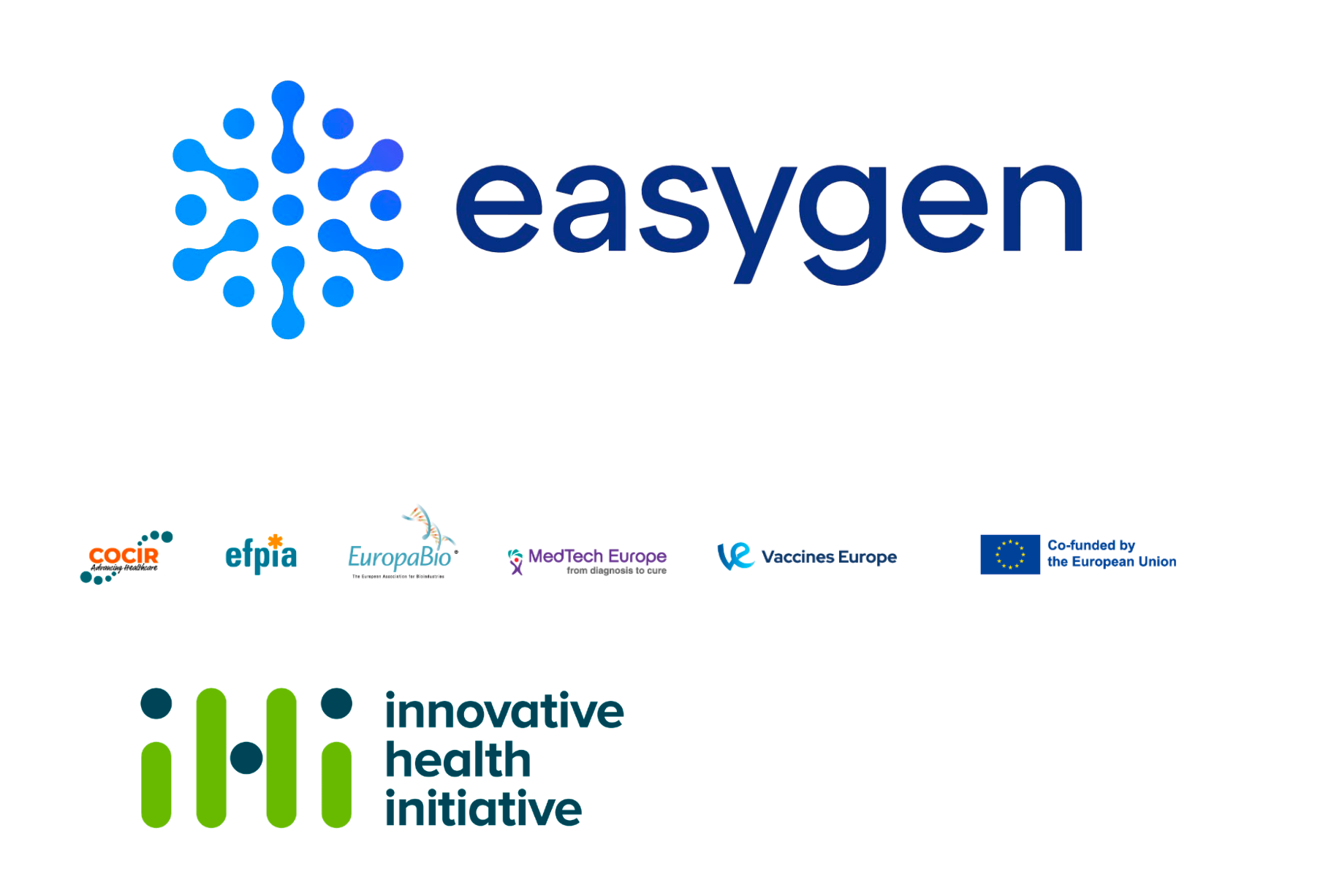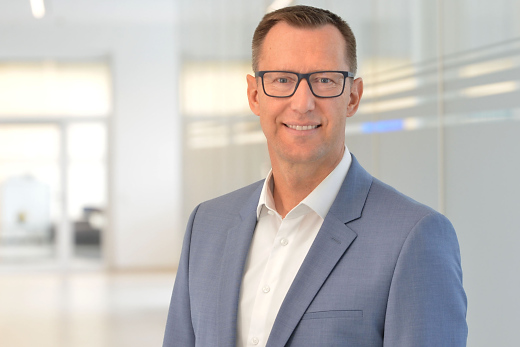August 26, 2025
Fresenius leads new EASYGEN consortium aimed at decentralizing CAR-T cell therapy and improving hospital workflows
Physicians, researchers, and partner institutions across Europe aim to deliver innovative, personalized therapies more quickly
Development project focused on a hospital-based modular platform, based on technology initially developed by Fresenius Kabi
The EASYGEN project is a public-private partnership, with €8 million backed by EU funding through the Innovative Health Initiative
Important step in #FutureFresenius program
The global healthcare company Fresenius is collaborating with other companies and academic institutions with the goals of accelerating the manufacturing of CAR-T cell therapy, making it more cost-effective, and improving patient access across Europe. Led by Fresenius, the newly launched EASYGEN (Easy workflow integration for gene therapy) consortium will focus on efforts to develop a modular, hospital-based platform capable of manufacturing personalized cell therapies in just a few days, rather than weeks. The project is a public-private partnership, with €8 million in funding provided by the EU through the Innovative Health Initiative (IHI). It leverages technology originally developed by the Cell and Gene Therapy team of Fresenius Kabi, part of Fresenius.
Dr. Christian Hauer, President MedTech at Fresenius Kabi, said: “This project contributes to expanding our MedTech platform, making it an important step on our path to #FutureFresenius. The aim is not only to develop cutting-edge medical technologies, but also to make them available quickly, safely, and close to the patient. In this way, we are actively working to shape the healthcare of tomorrow.”
“EASYGEN brings together physicians, researchers, and partner institutions from across Europe with the goal of collaboratively advancing innovative, personalized therapies such as CAR-T cells for cancer treatment. Automation can help reduce production complexity of these therapies, with the aim of making it easier to scale these life-saving treatments and improve patient access,” added Prof. Dr. med. Ralf Kuhlen, Chief Medical Officer at Fresenius.
CAR-T therapy is a breakthrough treatment that involves genetically modifying a patient’s T cells to target cancer. It requires complex, time-intensive production in specialized facilities often far from patients. Limited manufacturing capacity and supply chain delays can potentially prevent timely patient access. Despite clinical eligibility, access to CAR-T cell therapy remains limited for patients across Europe. This is particularly evident in diffuse large B-cell lymphoma (LBCL), a type of cancer that is one of the most common indications: Across five European countries, the average treatment rate is below 20%. While approximately 30% of eligible patients receive CAR-T therapy in France, the figure drops to just 11% in Italy.1
Fresenius is actively involved in cell and gene therapy. Fresenius Kabi provides medical technology for these therapies, including automated cell processing systems such as Lovo and Cue. Fresenius Helios, for example, at its Helios Hospital Berlin-Buch, has been offering CAR-T cell therapy as a standard treatment for relapsed cases since 2019. The clinic is also conducting clinical trials to further explore the potential of CAR-T therapies. Quirónsalud, Fresenius’ Spanish hospital business, has established specialized oncology units that offer CAR-T cell therapy as part of their advanced cancer treatment portfolio, particularly for hematologic malignancies.
EASYGEN is led by Fresenius and academically co-led by Fraunhofer Institute, IZI, Leipzig – one of Europe’s foremost immunotherapy research centers in collaboration with Prof. Dr. Michael Hudecek, a leader in CAR-T cell engineering and Prof. Dr. Ulrike Köhl, a pioneer in translational cellular immunotherapies.
1 IQVIA Institute for Human Data Science. (03/ 2025). Achieving CAR T-cell Therapy Health System Readiness: An Assessment of Barriers and Opportunities.
Consortium partners – 18 organizations across 8 countries
Industry & clinical leaders: Fresenius (Coordinator, Germany), Helios Hospital Berlin-Buch (Germany), Quirónsalud (Spain), Fenwal Inc. (USA), Cellix Ltd. (Ireland), Charles River (Germany), Pro-Liance Global Solutions (Germany), TQ Therapeutics (Germany), Philips Electronics Nederland B.V. (Netherlands).
Academic & research institutions: Fraunhofer IESE (Germany), Fraunhofer IZI (Germany), Helmholtz-Zentrum Dresden-Rossendorf (Germany), Technical University of Denmark (Denmark), Frankfurt School of Finance & Management (Germany), European Society for Blood & Marrow Transplantation (Netherlands), Bar-Ilan University (Israel), University of Glasgow (UK), University of Navarra (Spain).
* * *
Learn more about CAR-T cell therapy: Interview Prof. Bertram Glaß, Chief Physician for Hematology and Cell Therapy at Helios Hospital Berlin-Buch: www.fresenius.com/car-t-cell-therapy
* * *
About EASYGEN
EASYGEN is a five-year research project supported by the Innovative Health Initiative Joint Undertaking (IHI JU) under grant agreement No 101194710. The JU receives support from the European Union’s Horizon Europe research and innovation programme and COCIR, EFPIA, Europa Bío, MedTech Europe, Vaccines Europe and industry partners. Selected under the IHI call “User-centric technologies and optimized hospital workflows for a sustainable healthcare workforce”, the project aims to develop an integrated, automated platform that enables point-of-care CAR-T cell manufacturing—cutting production time, reducing costs, and expanding access to next-generation immunotherapies.
Disclaimer: Funded by the European Union, the private members, and those contributing partners of the IHI JU. Views and opinions expressed are however those of the author(s) only and do not necessarily reflect those of the aforementioned parties. Neither of the aforementioned parties can be held responsible for them.

Copyright: Johannes Krzeslack
Image Description
In the front row, from left to right: Dr. Sonja Steppan (Easygen Principal Investigator, Fresenius SE), Prof. Dr. Michael Hudecek (Fraunhofer IZI), Theresa Kagerbauer (TQ Therapeutics), Dr. Agnes Vosen (HZDR), Christopher Wegener (Fresenius Kabi), Vaclovas Radvilas (EBMT), Dr. Julia Schüler (Charles River), Dr. Julia Busch-Casler (HZDR), Nicole Spanier-Baro (Fraunhofer IESE), Vivienne Williams (Cellix Limited), Prof. Dr. Bertram Glaß (Helios), Prof. Dr. Ulrike Köhl (Fraunhofer IZI), Rebecca Scheiwe (Fresenius SE). In the back row, from left to right: Prof. Dr. Ralf Kuhlen (Fresenius SE), Prof. Dr. Jens O. Brunner (DTU), Dominik Narres (Fresenius SE), Thomas Brzoska (Pro-Liance Global Solutions), Dr. David Krones (Fraunhofer IZI), Dr. Sabine Bertsch (Pro-Liance Global Solutions), Dr. Ralf Hoffmann (Philips), Christin Zündorf (TQ Therapeutics), Dr. Anna Dünkel (Fraunhofer IZI).

This release contains forward-looking statements that are subject to various risks and uncertainties. Future results could differ materially from those described in these forward-looking statements due to certain factors, e.g. changes in business, economic and competitive conditions, regulatory reforms, results of clinical trials, foreign exchange rate fluctuations, uncertainties in litigation or investigative proceedings, the availability of financing and unforeseen impacts of international conflicts. Fresenius does not undertake any responsibility to update the forward-looking statements in this release.
Fresenius SE & Co. KGaA
Registered Office: Bad Homburg, Germany / Commercial Register: Amtsgericht Bad Homburg, HRB 11852
Chairman of the Supervisory Board: Wolfgang Kirsch
General Partner: Fresenius Management SE
Registered Office: Bad Homburg, Germany / Commercial Register: Amtsgericht Bad Homburg, HRB 11673
Management Board: Michael Sen (Chairman), Pierluigi Antonelli, Sara Hennicken, Robert Möller, Dr. Michael Moser
Chairman of the Supervisory Board: Wolfgang Kirsch


